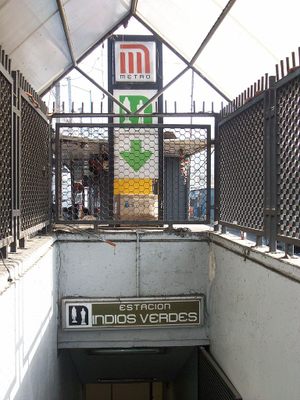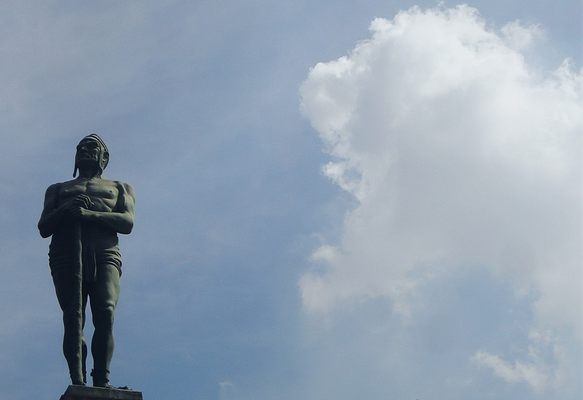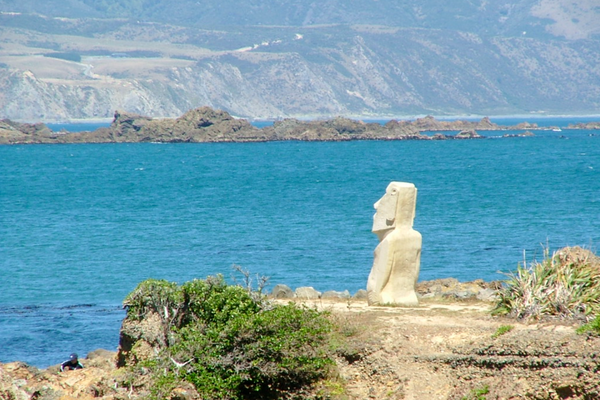About
A pair of sculptures by Alejandro Casarín represent two tlatoani, rulers of the Aztec/Mexica empire. They are Ahuizotl and Itzcóatl, and they were intended to represent Mexico at the 1889 Universal Exhibition in Paris. However, due to their weight, the statues were never shipped to France. Instead, the bronzes stayed in Mexico, and like the Statue of Liberty, slowly acquired a now-defining green patina.
Since the term indios (Indians) was still commonly used to refer to Indigenous people, the sculptures eventually came to be known as Los Indios Verdes ("The Green Indians"). Before turning green, they were also nicknamed Los Indios Nómadas ("The Nomad Indians") since, after their canceled travel plans, they went on to be rehomed several times across the city.
Their late 19th-century home was Paseo de la Reforma, the Mexican Champs Elysees. Pioneered during the French-influenced period known as Porfiriato, this wide avenue was the showcase for Mexico's major monuments, and the racist, Eurocentric attitudes at the time meant that these sculptures were often decried as "Aztec mummies" and "ridiculous figures."
By the next century, 1902 saw the statues moved to another important avenue (albeit with a less desirable postcode), the Calzada de la Viga. Their northward migration continued in 1920, when they were moved to the highway leading to Pachuca. This would be one of their longest homes, and now too far from their current one. Between 1969 and 1970, three of Mexico City's Metro lines were being built or beginning their operations.
It would take a full decade before the northernmost terminus of Line 3 opened. When Indios Verdes station was opened in 1979, the sculptures were moved closer to the station named after them. The park where they currently stand is known as Parque del Mestizaje. The idea of "race-mixing" is commonly known negatively in English as miscegenation, but in Latin America where mixed-race people are often a majority of the population, the word "mestizaje" is often used to paint it in a more positive light.
The Mestizaje Park celebrates this, re-contextualizing the sculptures that were once called Aztec mummies. With Ahuizotl having been one of the Empire's greatest military strategists, and Itzcóatl one of the greatest diplomatic ones (as the famous Triple Alliance came to be during his rule), it would make sense that they would be the representatives of the Indigenous half, in the concept that the Mestizaje Park stands for.
Related Tags
Know Before You Go
Indios Verdes station is the norternmost terminus of both Metrobus line 1 (red) and Metro line 3 (dry green).
Yucatan: Astronomy, Pyramids & Mayan Legends
Mayan legends, ancient craters, lost cities, and stunning constellations.
Book NowPublished
February 7, 2022


































